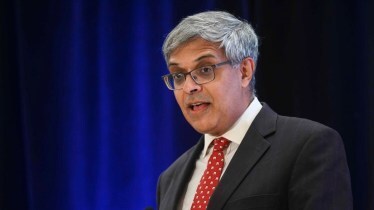United States President-elect Donald J. Trump on Tuesday announced that he had selected Dr. Jay Bhattacharya, a Stanford physician to be the director of the National Institutes of Health (NIH).
The economist was a central figure in a heated public health debate due to his anti-lockdown treatise during the coronavirus pandemic.
“Together, Jay and RFK Jr. will restore the NIH to a Gold Standard of Medical Research as they examine the underlying causes of, and solutions to, America’s biggest health challenges, including our Crisis of Chronic Illness and Disease,” Trump wrote on social media, referring to Robert F. Kennedy Jr., his choice to lead the N.I.H.’s parent agency, the Department of Health and Human Services.
According to a New York Times report, Dr. Bhattacharya would lead the world’s premier medical research agency, with a $48 billion budget and 27 separate institutes and centers, each with its own research agenda, focusing on different diseases like cancer and diabetes if confirmed by the Senate.
Reportedly, Dr. Bhattacharya Has called for overhauling the NIH and limiting the power of civil servants. He believes that these civil servants played too prominent a role in shaping federal policy during the pandemic.
The COVID-19 Treatise
During the COVID-19 pandemic, Dr. Bhattacharya was among the three lead authors of the Great Barrington Declaration, a manifesto issued in 2020 that maintained that the virus should be allowed to spread among young healthy people who were “at minimal risk of death”.
In the controversial manifesto, the authors argued hat this spread could thus help in developing natural immunity, while prevention efforts were targeted to older people and the vulnerable. Moreover, Dr. Bhattacharya presented his views to Alex M. Azar II who was Trump’s health secretary. However, various public health experts condemned him for his views. Dr. Bhattacharya and his fellow authors were promptly dismissed as cranks whose “fringe” policy prescriptions would lead to millions of unnecessary deaths.
Dr. Bhattacharya was also became a preferred witness in court cases challenging federal and state Covid policies. He also joined a group of plaintiffs in suing the Biden administration over what he called “Covid censorship.” He had argued that the administration violated the First Amendment in working with social media companies to tamp down on Covid misinformation.
The Stanford physician also sparked a controversy when he protested against the mask mandates for schoolchildren in Florida and Tennessee. Judges in both states dismissed him as unqualified to make medical pronouncements on the matter.
In March 2020, for example, Dr. Bhattacharya suggested in a Wall Street Journal opinion essay that the pandemic was not as deadly as it was being made out to be, and that the death toll might top out at 40,000 Americans; in the end, 1.2 million died, New York Times reported.
Social media restriction
As his views were continuously condemned, Bhattacharya also faced restrictions on social media. He was a complainant in a key Supreme Court case alleging that federal officials improperly suppressed conservative perspectives on social media in their efforts to combat misinformation. The Supreme Court ruled in favour of the Joe Biden administration.
Following Elon Musk’s acquisition of Twitter in 2022, Bhattacharya was invited to the company’s headquarters to examine how his views had been curtailed on the platform. Recently, Bhattacharya has used X to comment on scientists leaving the platform for the alternative site Bluesky, sarcastically referring to Bluesky as “their own little echo chamber”.
A look at Dr. Jay Bhattacharya’s Life
- Jay Bhattacharya was born in Kolkata in 1968.
- Dr Bhattacharya earned a doctorate in medicine from Stanford in 1997. He also earned a Ph.D in economics from the same university three years later.
- Dr Bhattacharya is a Professor of Health Policy at Stanford University and a research associate at the National Bureau of Economics Research. He directs Stanford’s Center for Demography and Economics of Health and Aging.
- His research focuses on the health and well-being of vulnerable populations, with a particular emphasis on the role of government programmes, biomedical innovation and economics.
- He has published 135 articles in top peer-reviewed scientific journals in medicine, economics, health policy, epidemiology, statistics, law and public health, among other fields.
Last month, Dr. Bhattacharya hosted a forum on pandemic policy at Stanford and he said that he hoped to bring together people of different views who would “talk to each other in a civil way.” the forum itself became the target of attacks — a development that Stanford’s president, Jonathan Levin, called “dispiriting.”
One of Dr. Bhattacharya’s Stanford colleagues, Dr. Pantea Javidan of the Department of Psychiatry and Behavioral Sciences, was quoted in The San Jose Mercury News as saying the symposium gave “a platform for discredited figures who continually promote dangerous, scientifically unsupported or thoroughly debunked approaches to Covid.”
